Co-creating Public Lighting Technology and Policy for Informal Settlements
Architects and urban designers are currently developing new concepts and tools to comply with the participatory design approach emerging. Urban Research Incubator researchers Michael Walczak & David M. Kretzer are investigating innovative lighting approaches and their performance in Bogotá, co-created with informal settlement dwellers and tested with Colombian policy-makers. Their work is hosted by the Network City and Landscape Newsletter addressing the topic of "Participation".
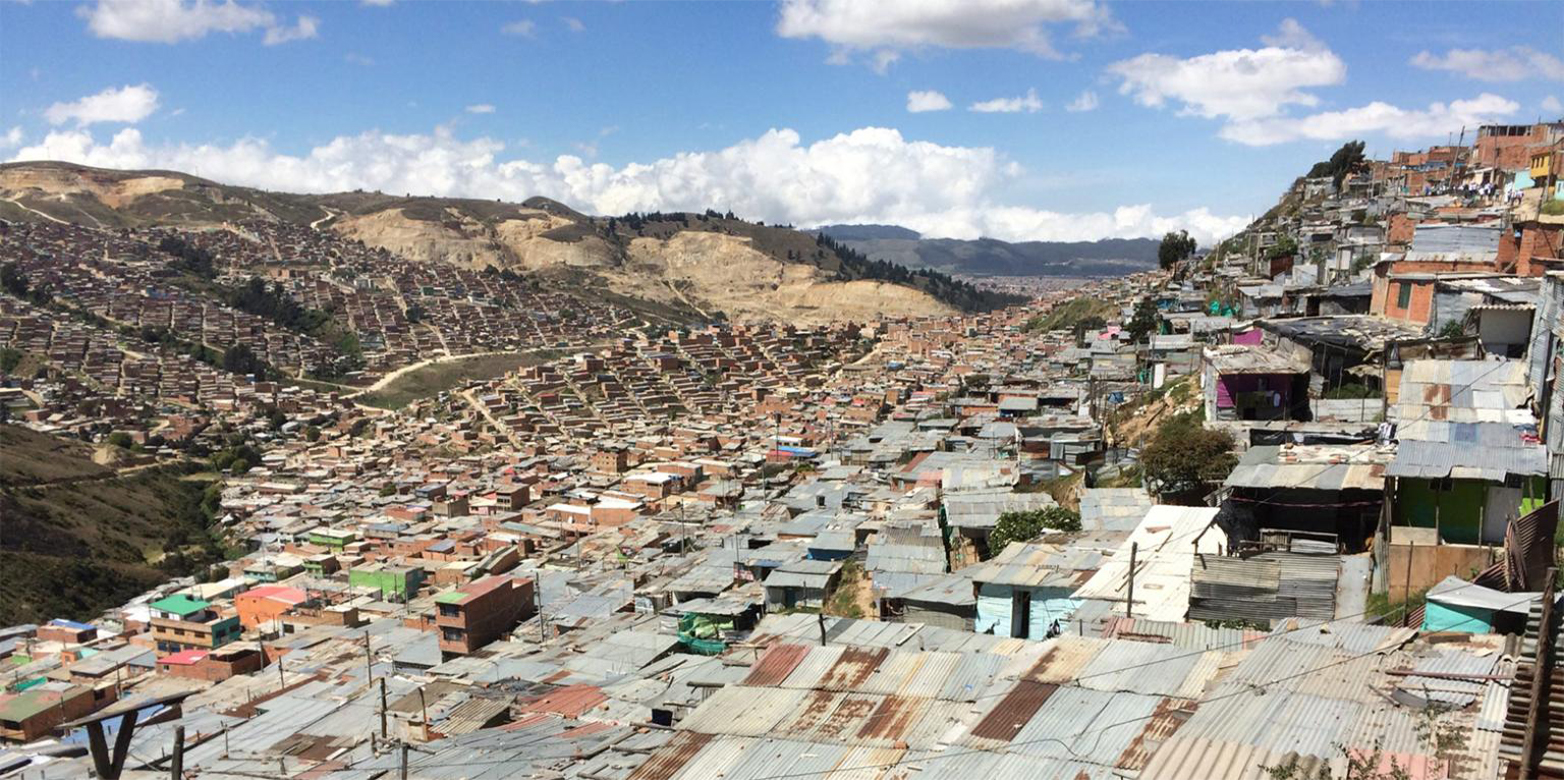
The transdisciplinary research project «Virtual Environments as a Decision-making Tool for Public Lighting in Bogotá» focuses on lighting technology and its performance in Bogotá’s densifying urban environments. New lighting approaches are co-created together with informal settlement dwellers and tested with Colombian policy-makers through a Virtual Environment.
Many self-built luminaires are installed in informal settlements by residents when no "formal" public lighting is provided by the authorities. The aims of this study are to analyse such existing "informal" lighting technology, to co-develop alternative lighting approaches based on this analysis, and to empirically evaluate these approaches using novel visualisation techniques with policy-makers. Through this, informal settlement-specific lighting technology will be developed that on the one hand incorporates promising design solutions from the current "informal" luminaires, and on the other overcomes shortcomings in existing lighting approaches.
To investigate informal lighting systems, an ethnographic multi-method case-study was conducted in an 183 m long pedestrian street in Bogotá’s settlement Caracolí. This included night-time street observations, walkthroughs, resident interviews, a dwelling construction survey, a lighting audit and illuminance measurements.
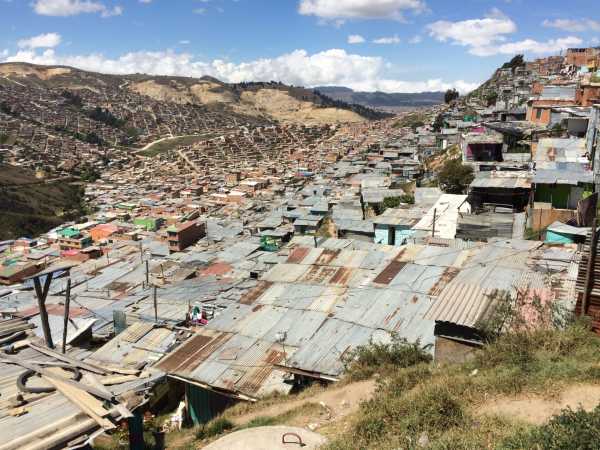 The informal luminaire, that was further analysed in laboratories, in its original environment. (D. Kretzer / ETH Zurich)
The informal luminaire, that was further analysed in laboratories, in its original environment. (D. Kretzer / ETH Zurich) 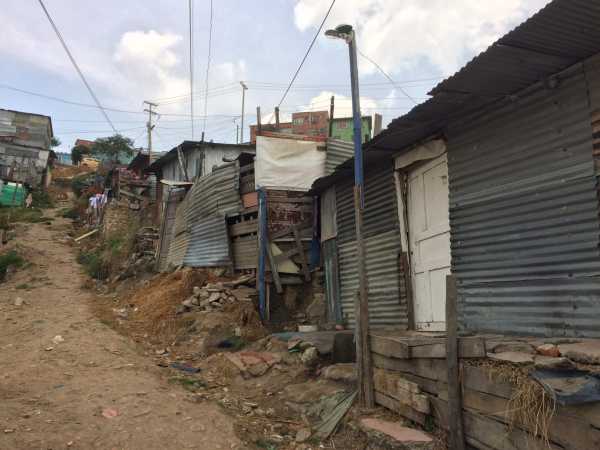 The informal luminaire is tested in Paconsult Swiss laboratories and in the Zumbotel Lighting goniophotometer. To facilitate this research both companies provided free access to their measurement facilities. (D. Kretzer / ETH Zurich).
The informal luminaire is tested in Paconsult Swiss laboratories and in the Zumbotel Lighting goniophotometer. To facilitate this research both companies provided free access to their measurement facilities. (D. Kretzer / ETH Zurich).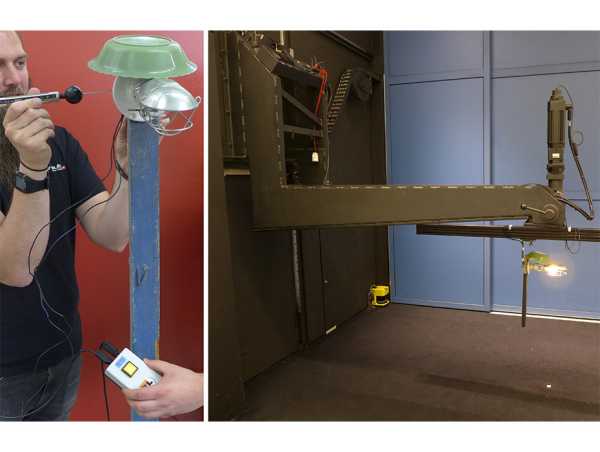 Impressions from the night-time Virtual Environment. (M. Walczak / ETH Zurich)
Impressions from the night-time Virtual Environment. (M. Walczak / ETH Zurich) 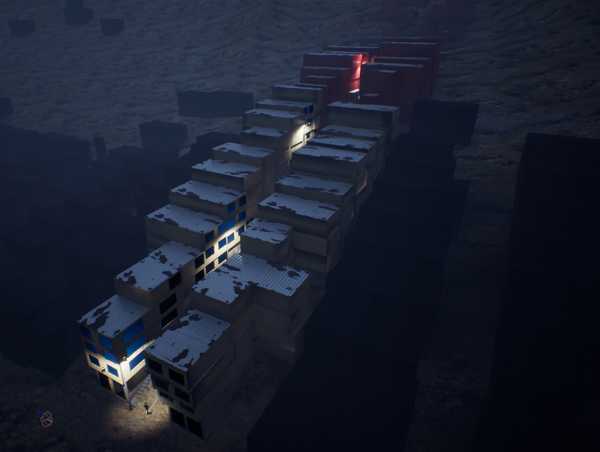 Impressions from the night-time Virtual Environment. (M. Walczak / ETH Zurich)
Impressions from the night-time Virtual Environment. (M. Walczak / ETH Zurich) 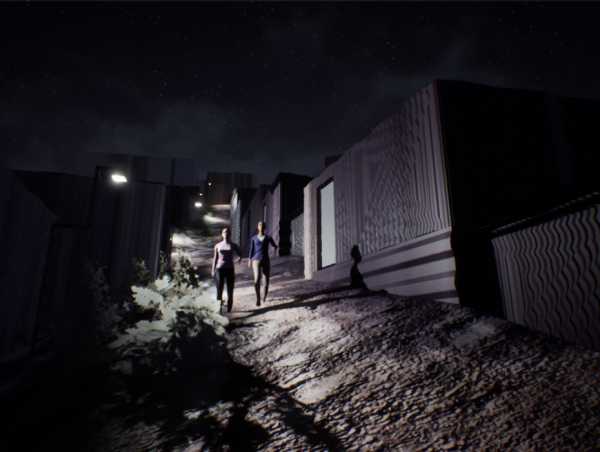 Impressions from the night-time Virtual Environment. (M. Walczak / ETH Zurich)
Impressions from the night-time Virtual Environment. (M. Walczak / ETH Zurich) 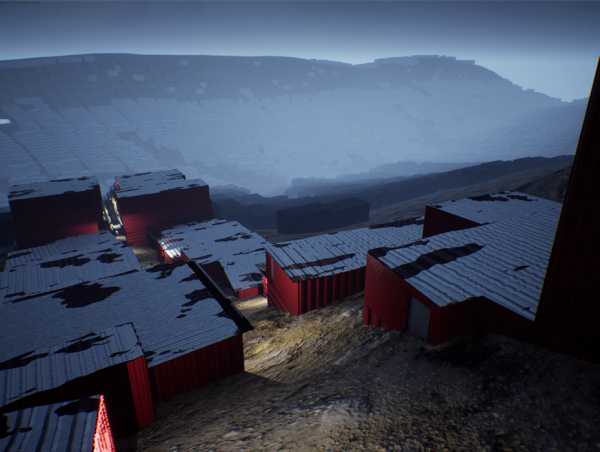 Transforming the data gathered through drone and 360o filming as well as distance measurements into a 4D model was a complex iterative process. The drone footage was the basis to establish information on the plan view. (M. Walczak / ETH Zurich)
Transforming the data gathered through drone and 360o filming as well as distance measurements into a 4D model was a complex iterative process. The drone footage was the basis to establish information on the plan view. (M. Walczak / ETH Zurich)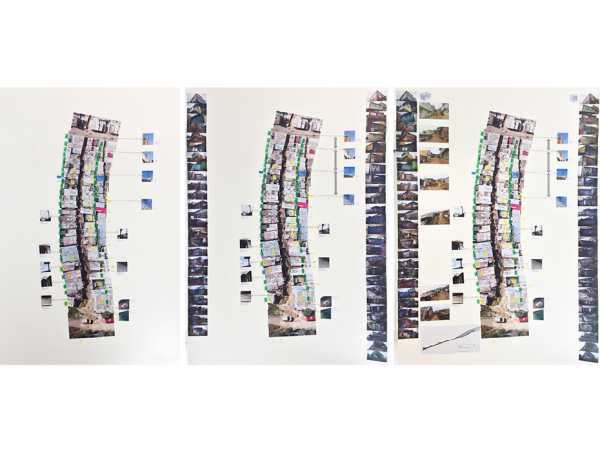
Michael Walczak and David M. Kretzer are both doctoral students, conducting research at the Urban Research Incubator of the Institute of Science, Technology and Policy as well as the Chair of Architecture and Urban Design from Prof. Hubert Klumpner, and the Laboratory for Energy Conversion from Prof. Reza Abhari.
- For the full article, please visit the Network City and Landscape Newsletter homepage.
- For further information regarding the "Virtual Environments as a Decision-making Tool for Public Lighting in Bogotá" Research Project, please visit the URI homepage.